|
This exercise has centered mostly on past and present efforts by Black women intellectuals to challenge oppression. We have reviewed the actions of women from Fannie Lou Hamer to Beyoncé, finding the Black Feminist Thought that manifests in the work they do.
With this final day, we invite you to click here and consider how Black Feminism might shape the future.
0 Comments
bell hooks is one of the foremost thinkers in the field of Black feminism. Her work and writing has revealed the complexity of gendered racism as well as the ways that Black people and women strategize for liberation. Melissa Harris-Perry follows in the footsteps of academics like bell hooks, bridging the gap between academia and the public sphere in order to uplift marginalized voices. Click play on the video below to hear bell hooks and Melissa Harris-Perry conversation. #SayHerName began as a call to action to bring to light the injustice faced by Black women during encounters with law enforcement. Just like Black men, Black women face disproportionate violence in police encounters. They also are more likely to experience sexual harassment. Beyond that, #SayHerName sheds light on the gendered violence Black transwomen face as well.
#SayHerName is led by Kimberlé Crenshaw in partner ship with the African American Policy Forum and the Center for Intersectionality and Social Policy Studies. In 2015 they released a report titled 'Say Her Name: Resisting Police Brutality Against Black Women.' Click here to read the report and learn more about Black women and police violence. #BlacKfeministLit is an effort to center the work of Black women intellectuals. In many ways, #BlackFeministLit hopes to answer the 'Who, What, When, Where, and Why' of Black Feminism through art, academic articles, and documentaries. Today's post features spoken word artist Jillian Christmas. In this poem 'Black Feminist' she answers the 'Why' of Black Feminism. Click play on the video below to here a poet's take on Black Feminism.
Black women practice feminism in their work.For instance, Black feminist intellectuals in a wide range of fields from anthropology to medicine have published on how this ideology substianties their worldview. Outside of academia, Black women artists also demonstrate how Black feminism gives them a lens through which to critique and question the world
. Kara. Walker is an artist inspired by Black womanhood. In 2014 she debuted a piece titled "A Subltety" which included a massive sculpture of a Black woman made entirely out of sugar.
Click play on video to learn how Kara Walker uses art to speak to Black women's experiences. Click here to view Kara Walker's work in her digital art collection.
Black feminists use a number of art forms to discuss their positionality in a racist and sexist society. Audre Lorde says of poetry that each of us have a 'Black Mother' within whose poetic spirit must be joined with the rationale and logos valued in Western societies.
One woman who embraced this inner Black Mother is Maya Angelou. Read some of her Black Feminist Thoughts in the poem below. Independence and agency are a theme of Black feminism. Present in poetry, prose, music, and even scholarly articles is the notion that Black women are a dynamic force of change in the world. When we listen to and study Black women's ways, we find the tools for liberation in addition to a critique of White supremacy. In her most recent album A Seat at the Table, Solange Knowles delves into a Black feminist framing of Black history to give us an understanding of the complicated ways we exist in the present. Her song 'Don't Touch My Hair,' talks back to those who engage in cultural appropriation, using Black women's fashion and style as chic, all the white perpetuating oppression against people of color. Click play to hear the lyrics and observe this ode to Black culture below! Day 23: Read the "Outsider Within": Counter-Narratives of Human Rights in Black Women's Fiction11/23/2016 According to sociologist Patricia Hill Collins, Black women's double marginality leads them to have an outsider within status. In a 1986 Social Problems article, Collins lays out some of the benefits of this status: Some of the potential benefits of outsider within status include: (1) Simmel's definition of "objectivity" as "a peculiar composition of nearness and remoteness, concern and indiffer- ence"; (2) the tendency for people to confide in a "stranger" in ways they never would with each other; and (3) the ability of the "stranger" to see patterns that may be more difficult for those immersed in the situation to see. (Collins 1986: S15) Since Collins initially formed the theory, many scholars have used the outsider within to frame research and articles about Black women and other marginalized groups. This includes a 2015 Radical Teacher article by Shane McCoy in which he describes how Black women in fiction provide a lens to view the struggle for human rights.
Click here to download McCoy's article and see how Black women operate as the outsider within. Hair is a significant part of Black women's culture. Black women's hair could be a potentially 500 billion dollar industry. Black women's hair is also fraught with stigma. In a 2014 Salon article, Black Feminist scholar Brittney Cooper writes: I have come to love these sacred cultural rituals of black womanhood. I also recognize that they are deeply political rituals, too. Check out the infographic below to learn more about Black women's hair.
People have had difficulty identifying with the feminist movement since its inception. Inherent in the resistance to name one's self a feminist is a failure to understand what feminism is and who benefits from it. Author Chimamanda Ngozi Adichie illuminates why feminism provides freedom for everybody as she urges as to "all be feminists." Click play on the video below to here Chimamanda in her own words. Then check out this list of African feminists you should know.
Black women musicians and artists have long used their voices to communicate about their struggle for liberation. From spirituals to blues to rap and R&B, Black women have navigated the musical terrain to envision worlds centered on Black womanhood.
Beyoncé's music video 'Formation,' and her entire Lemonade album represent a modern example of this performative Black womanhood. In these lyrics she is proud of her Black Southern heritage and urges other Black women to 'get in formation' or 'get information' as a source of strength for the pride of Black womanhood. Click play on the video below to watch this ode to Black Southern womanhood. Black women's music has revolutionary power to communicate about their oppression as well as strategize for liberation. Jamila Woods is a Chicago-based singer and songwriter. Her work emerges in the long line of Black women who use music to speak to Black women's issues.
Click play on the video below to watch Jamila Woods 'Blk Girl Soldier.' Black feminism is more than an ideology. It serves as a guiding framework for the politics that inform people's desire to achieve human rights. This framework includes understanding how racism and sexism intertwine to shape lived experience in order to liberate all people.
Check out this blog on For Harriet about the importance of not erasing Black women's activism. Today, we invite you to reflect on how you incorporate Black feminism into your work or daily life. Let us know in the comments. Black feminism is not just an American phenomenon. Black women across the diaspora have articulated how they do and conceptualize feminism, taking into account how their surrounding environment calls for specific strategies. Black feminism is global and diverse. To understand Black feminism then means taking into account all these voices and how we can learn from them.
Scholars Brenda Nyandiko Sanya and Anne Namatsi Lutomia give an overview of the importance of including African women in the vision of a unified African Diaspora in a 2015 Feminist Africa article. Click here to read the article and learn more about African women and feminism. Writer Audre Lorde is known for her poetry and works like Sister Outsider: Essays and Speeches. Audre Lorde identified as a Black lesbian feminist. She brought to the forefront a critique of White supremacy, imperialism, as well as homophobia among Blacks. Today her work is central to Black feminist studies on sexuality and identity.
In 1979 Audre Lorde gave a speech about Lesbian and Gay Rights. Click the video below to hear Audre Lorde speak to the importance of LGBTQ rights. |
Archives
April 2019
Categories
All
|

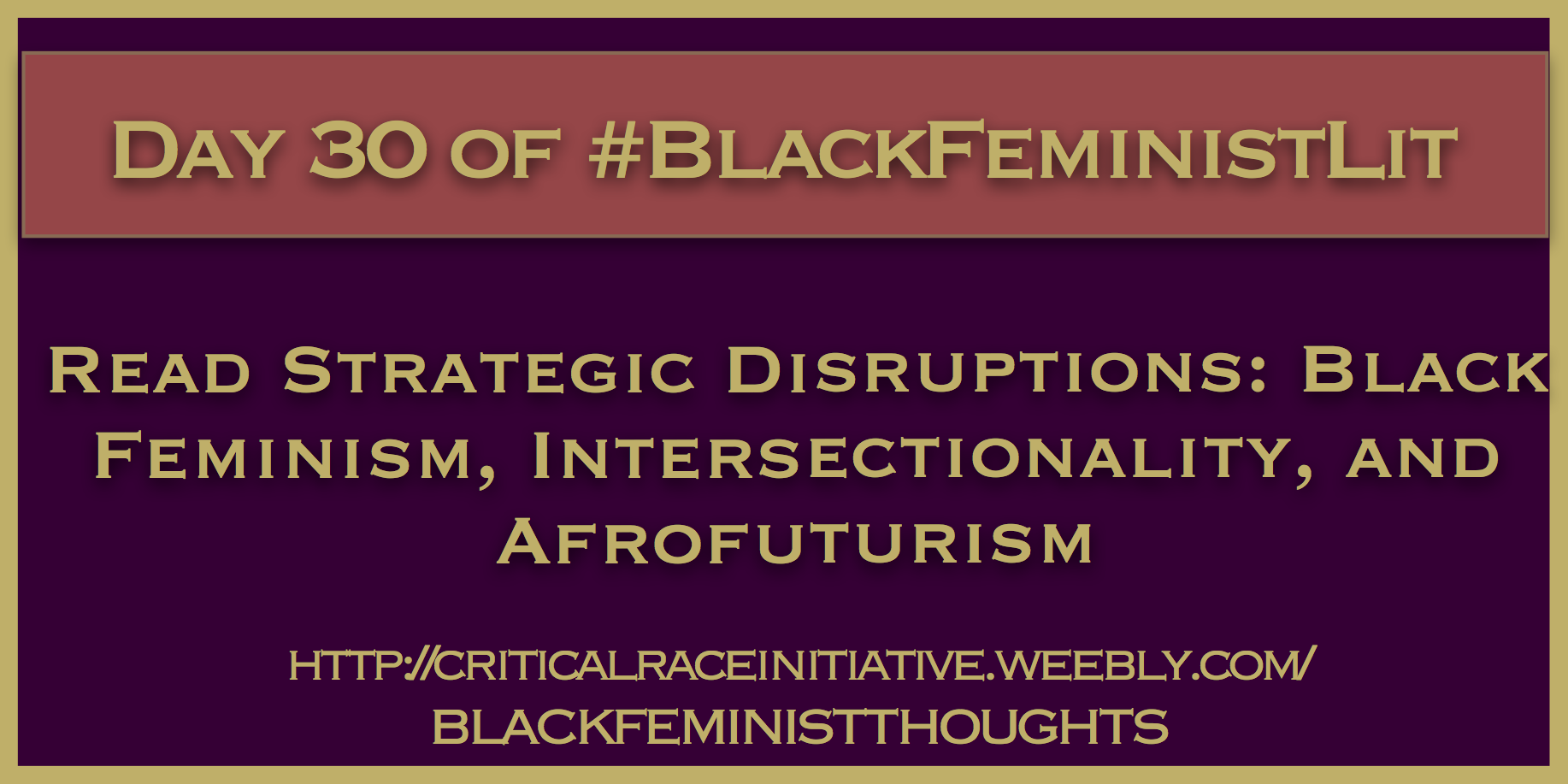
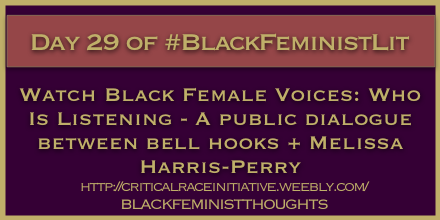
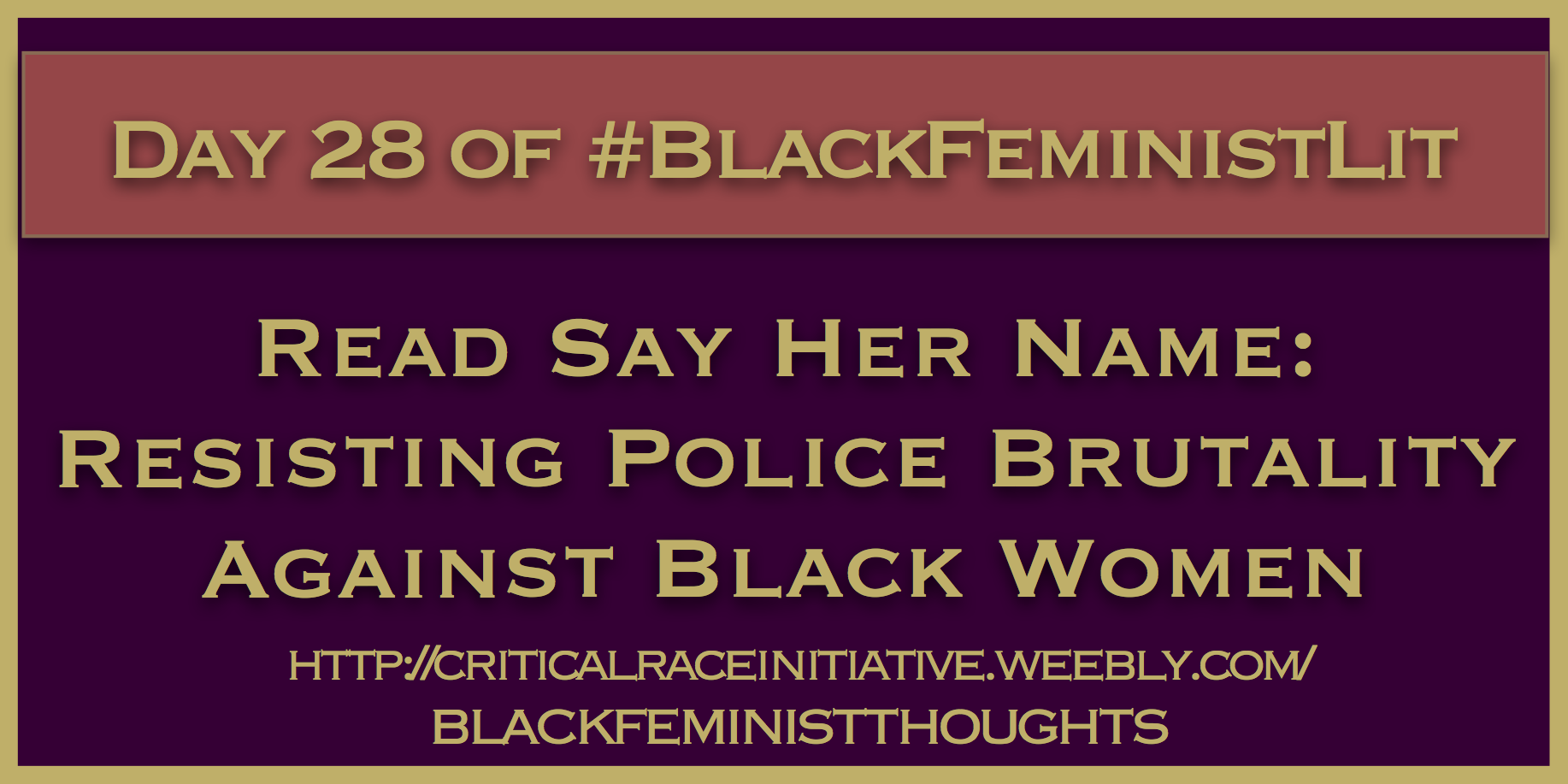
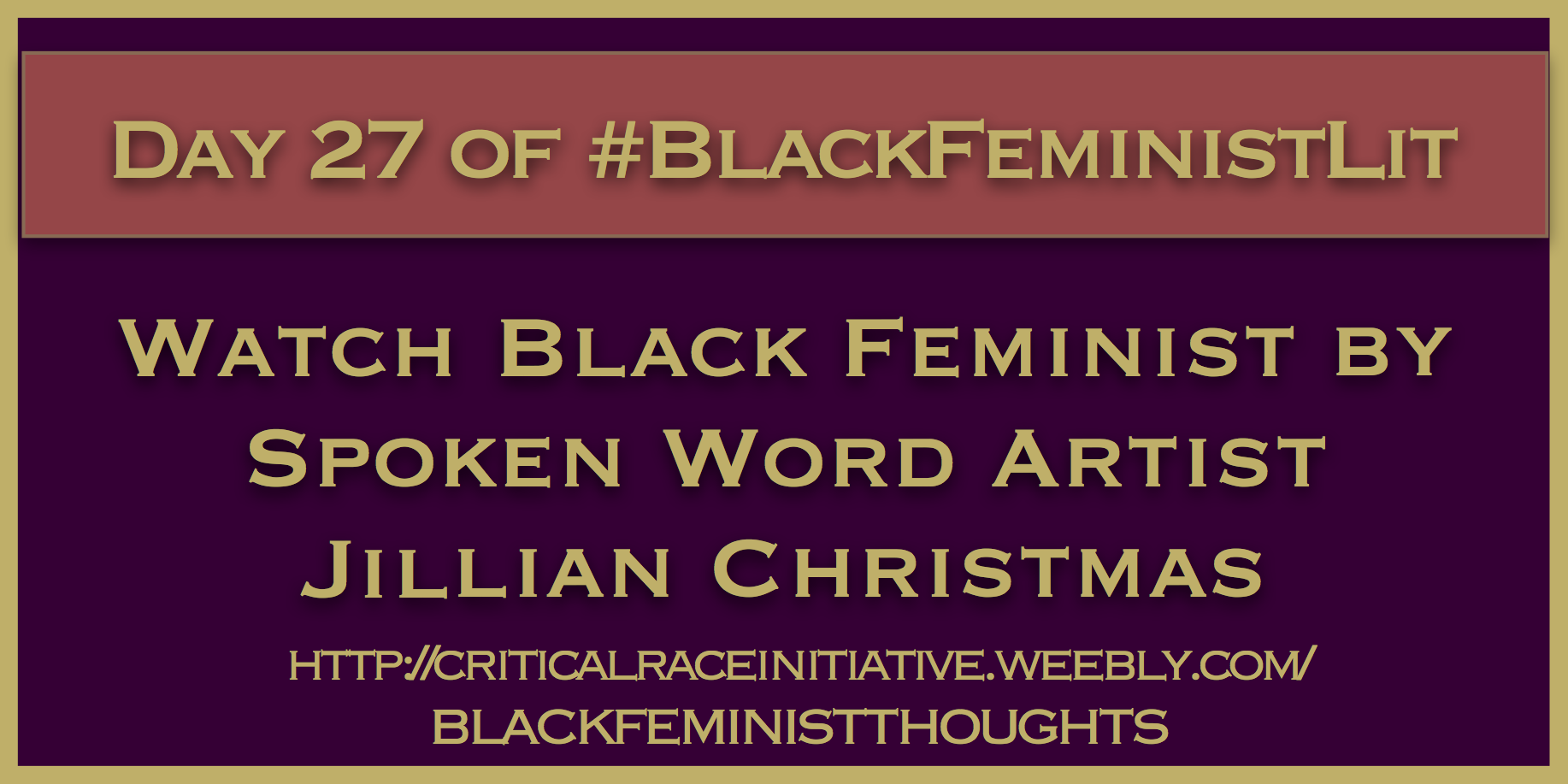
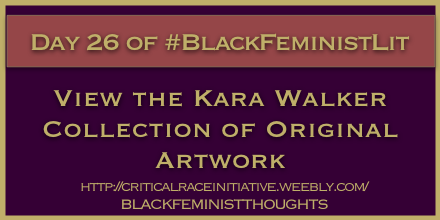
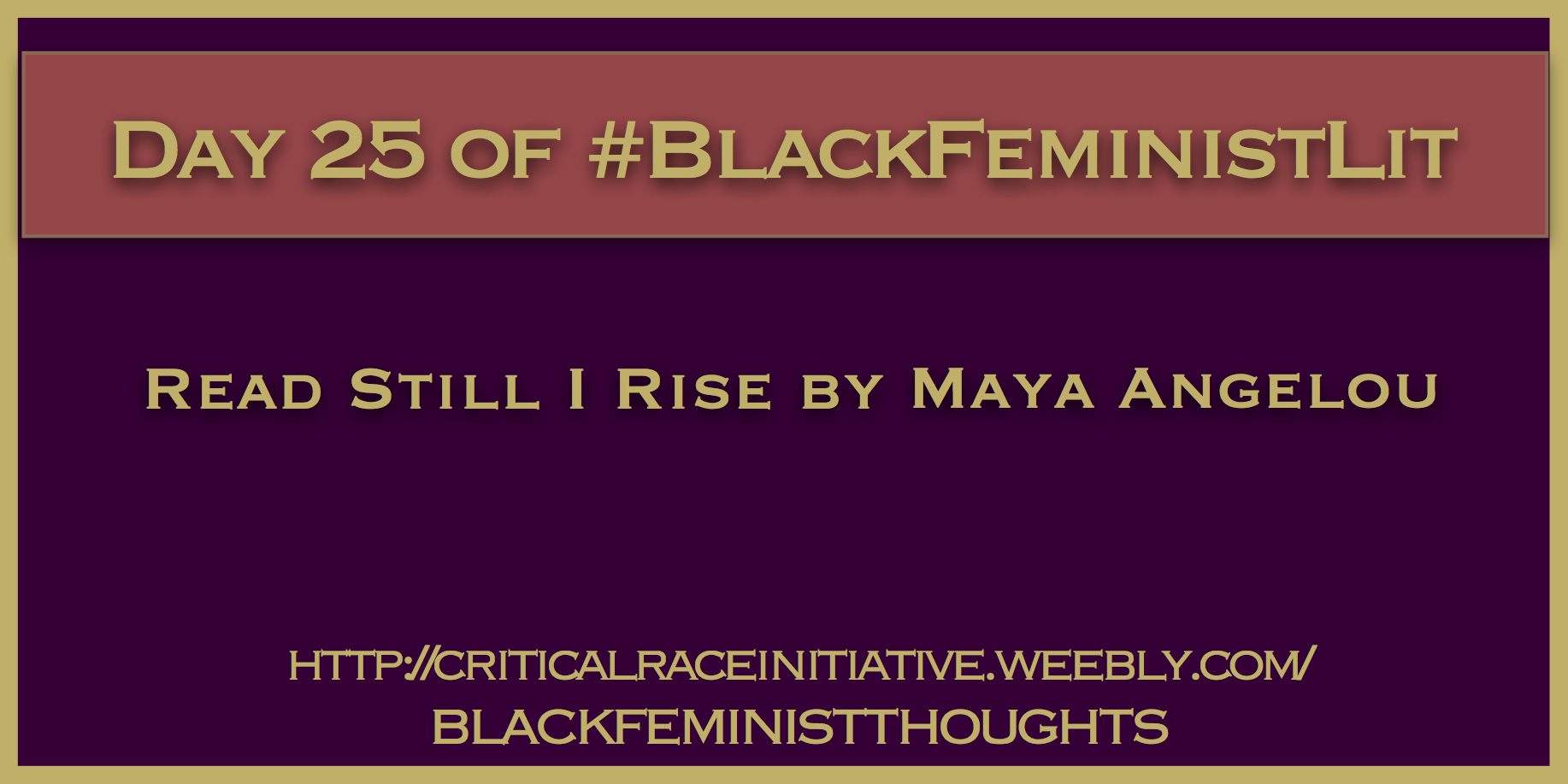
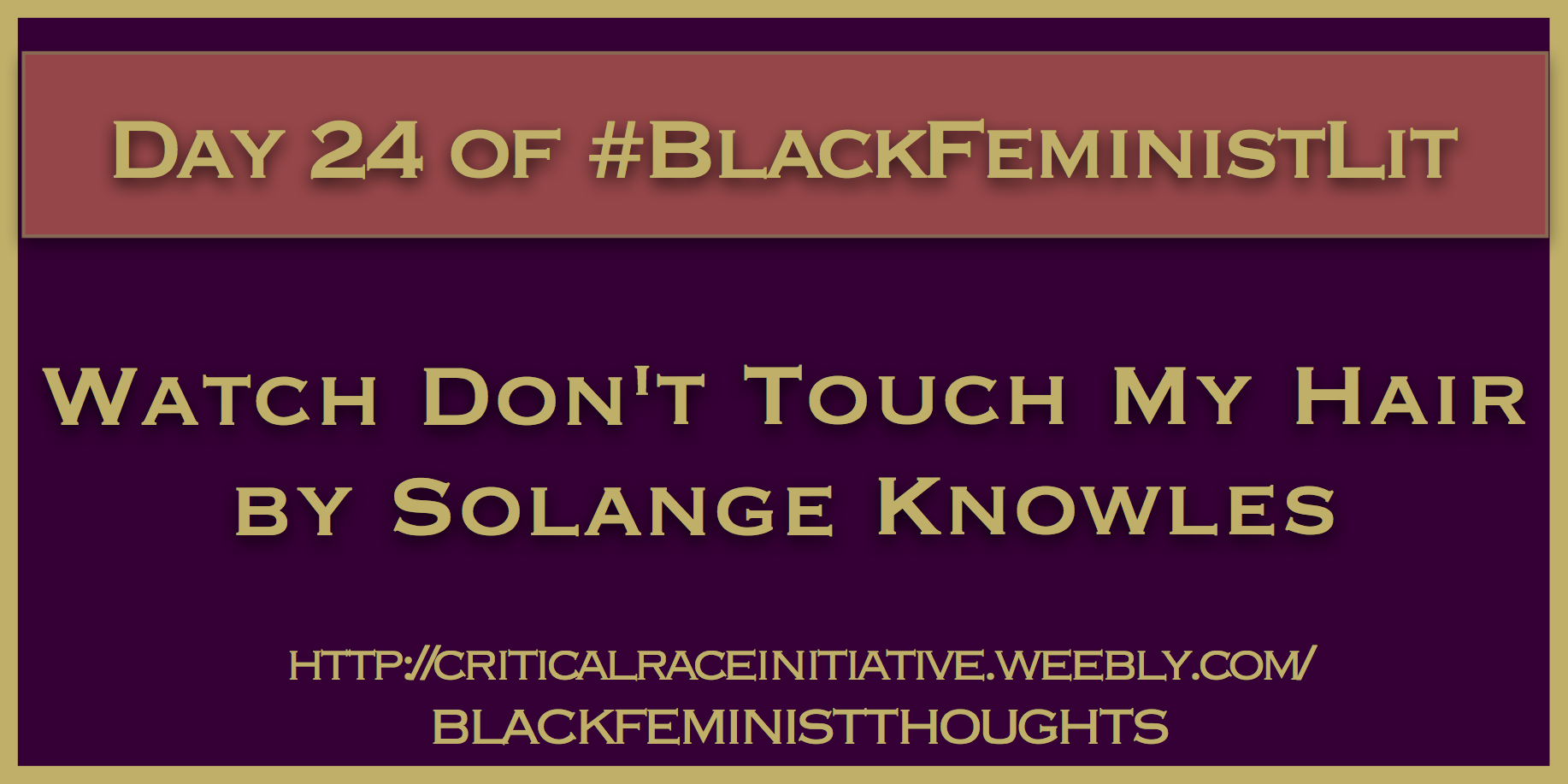
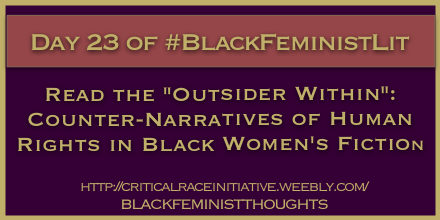
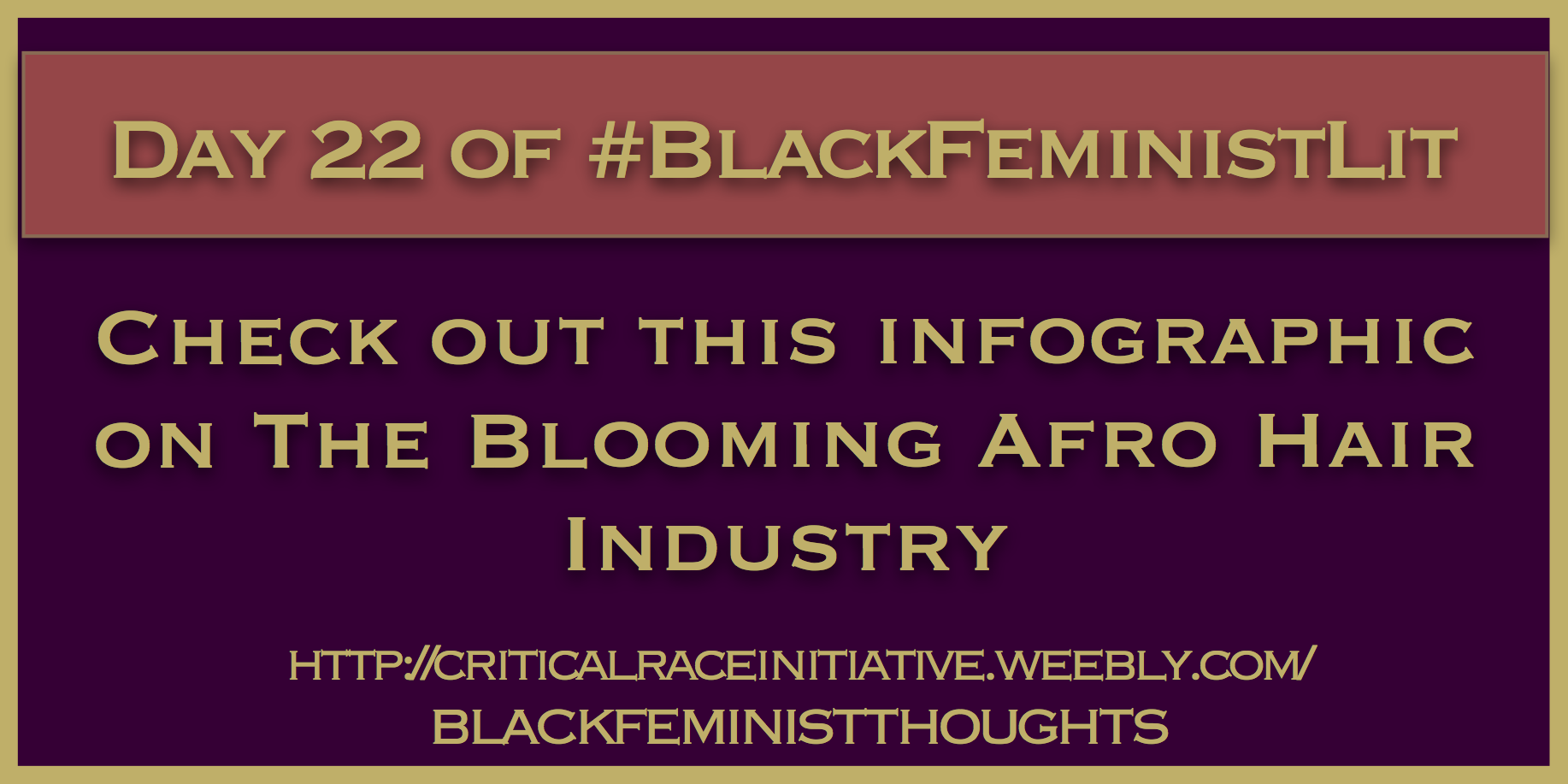

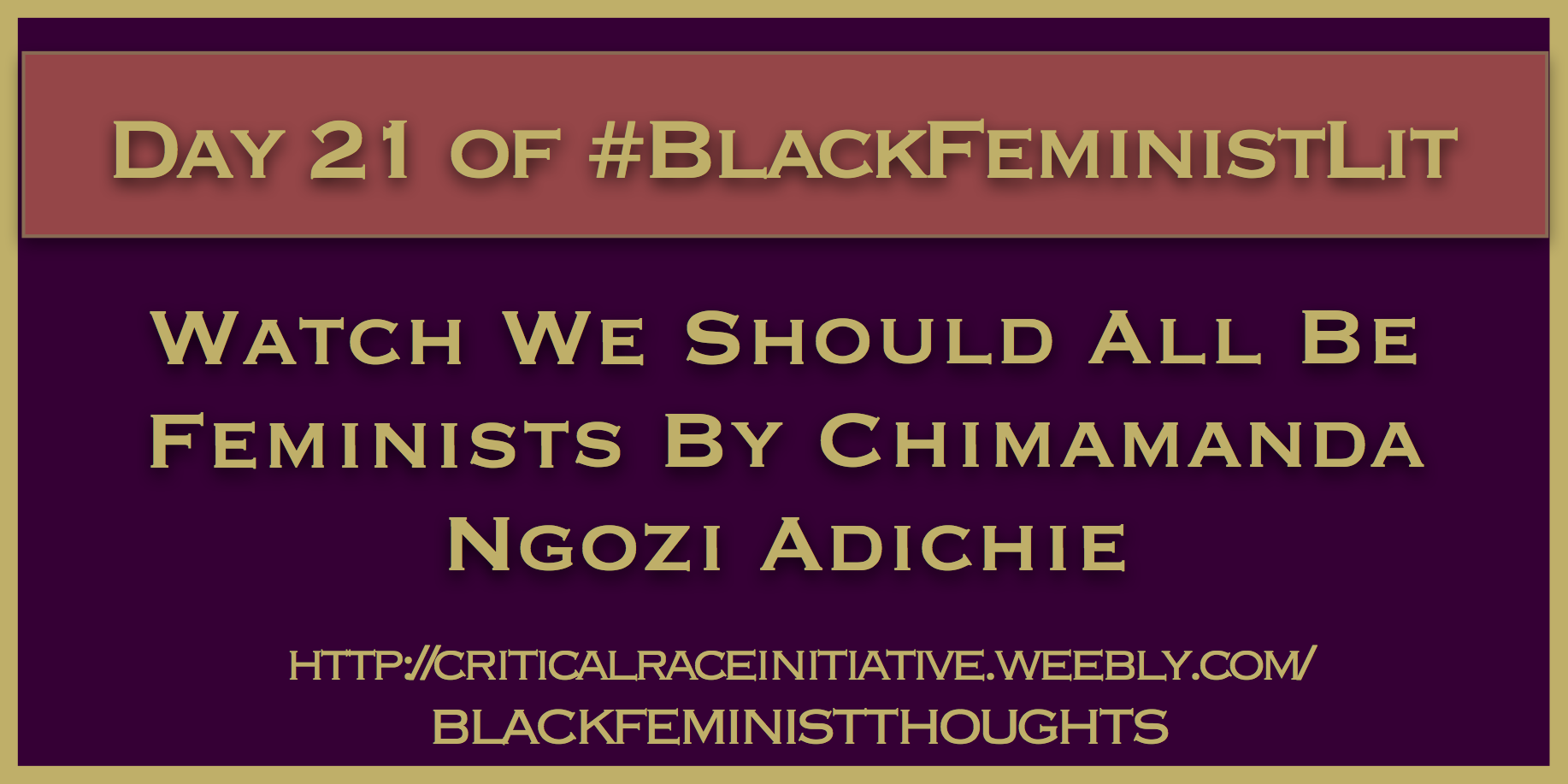
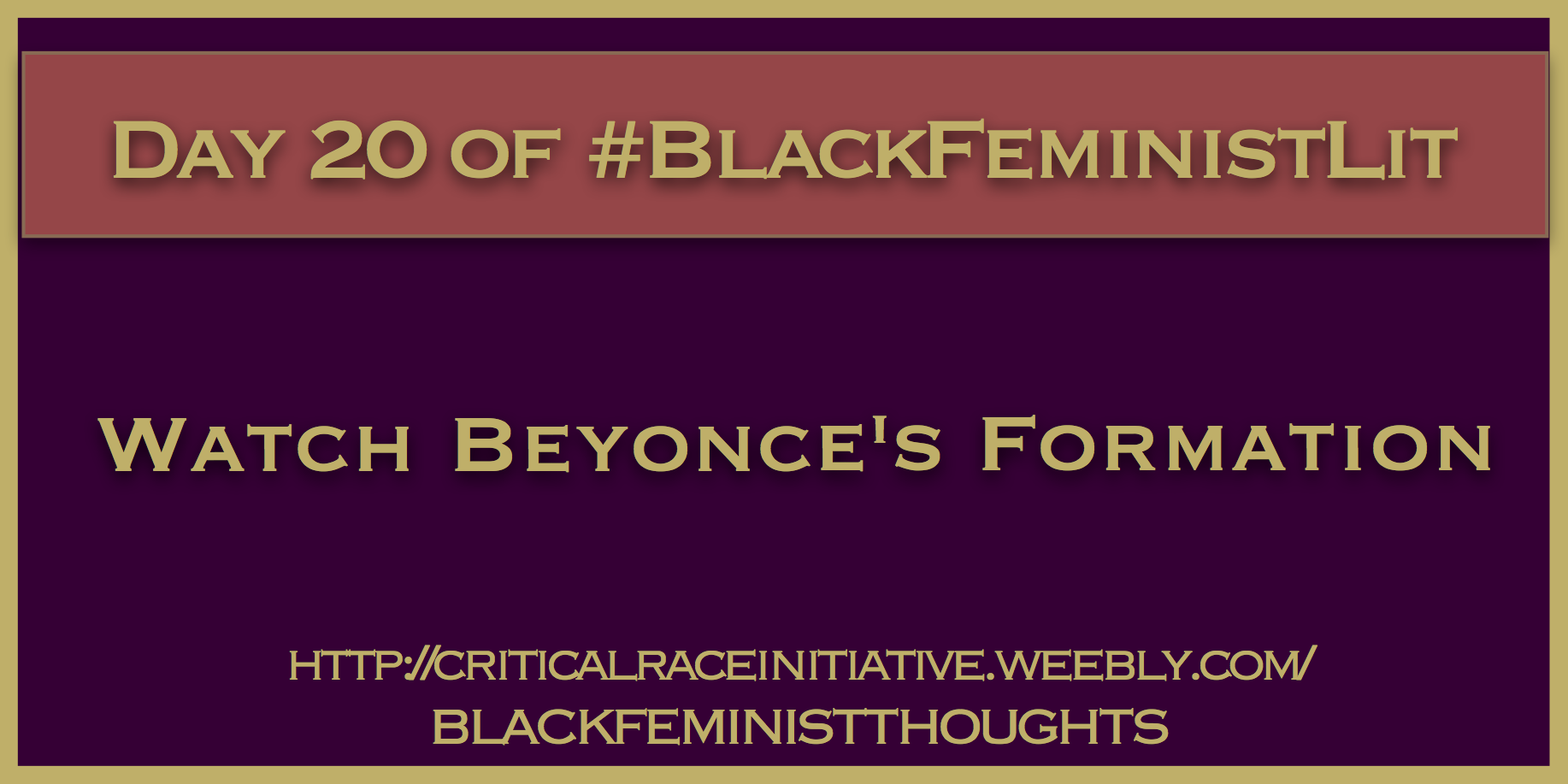
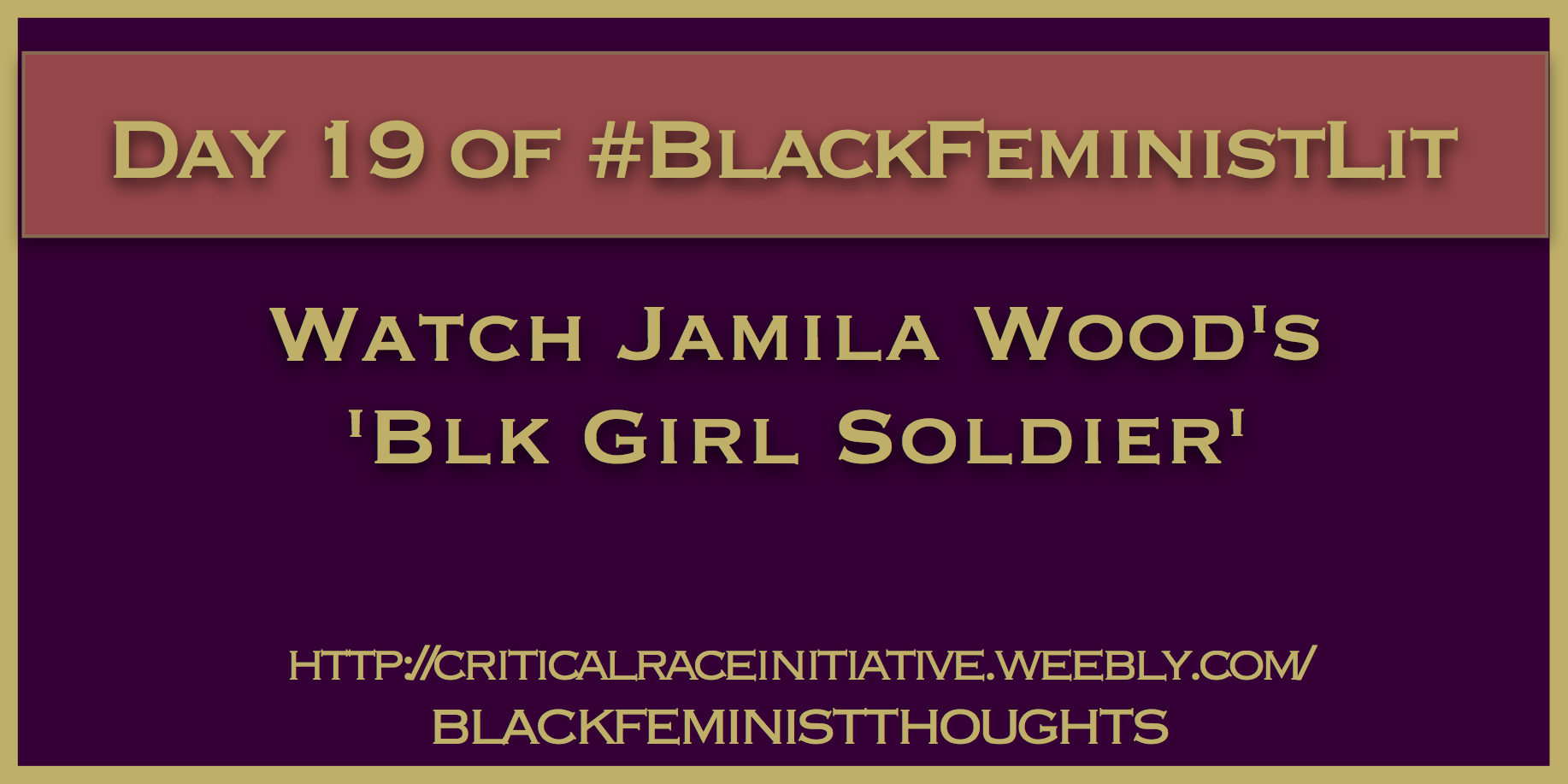
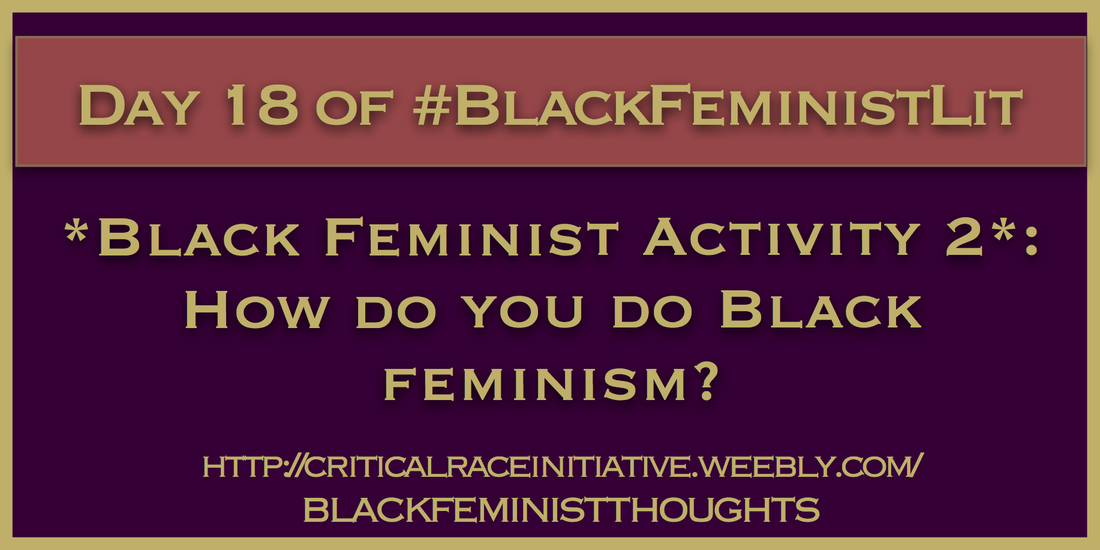
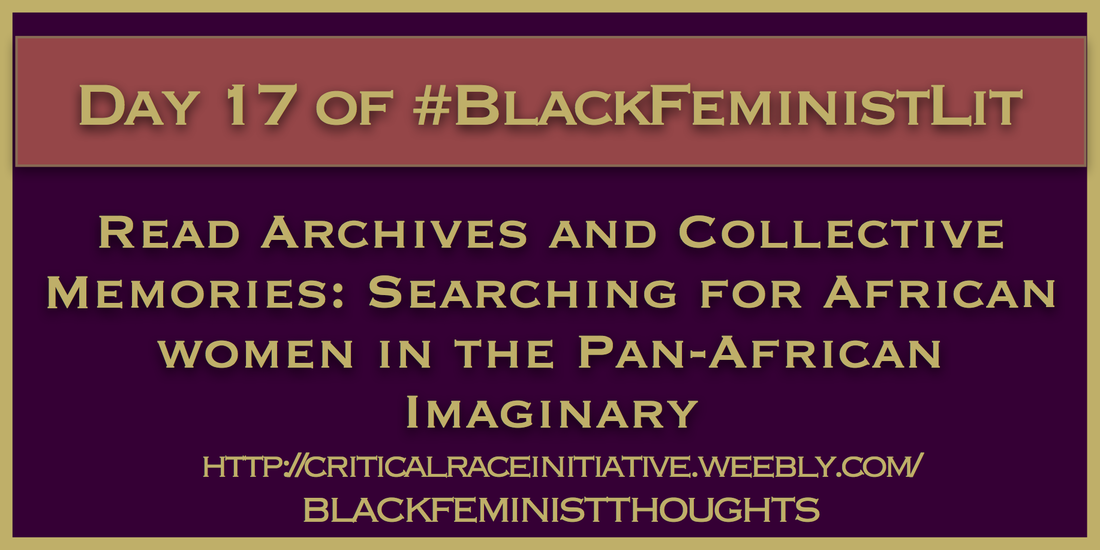
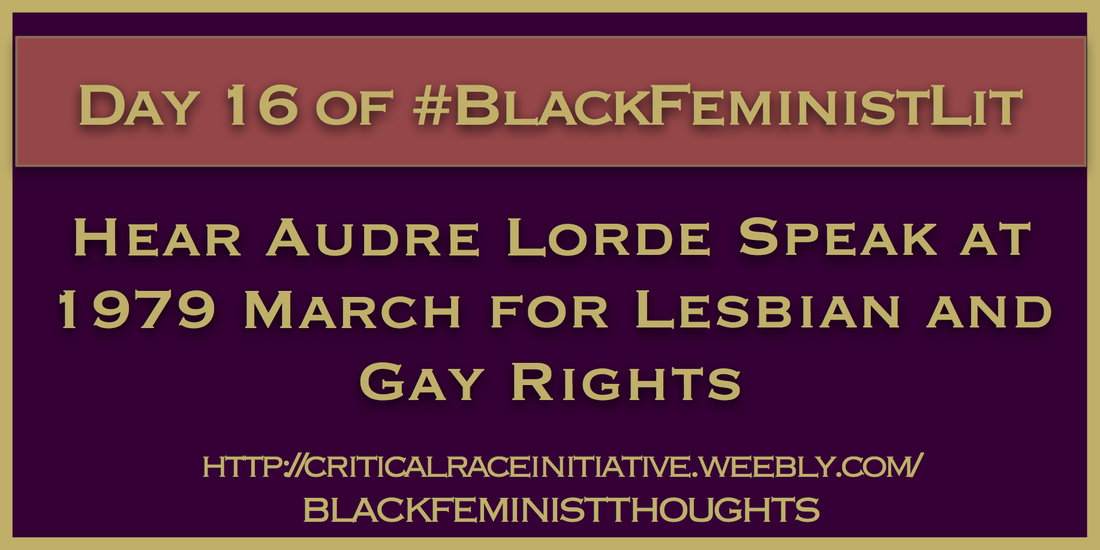
 RSS Feed
RSS Feed
